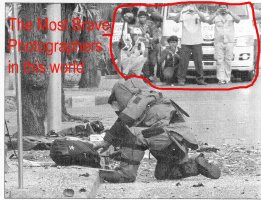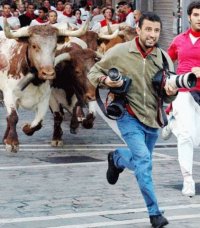Dear Friends.
As the Photographers, What will we do, when we see the bad News / Bad Actions in front of us---Shoot the Photos first and Help them , or Forget about Photos and Help Them---Or do Both As Nick UT. Did ??
Thank you, for your Comments and IDEAS of your reactions.
Surapon
Please Click on the Link below.
About A Photograph : Nick Ut on Vimeo
As the Photographers, What will we do, when we see the bad News / Bad Actions in front of us---Shoot the Photos first and Help them , or Forget about Photos and Help Them---Or do Both As Nick UT. Did ??
Thank you, for your Comments and IDEAS of your reactions.
Surapon
Please Click on the Link below.
About A Photograph : Nick Ut on Vimeo



